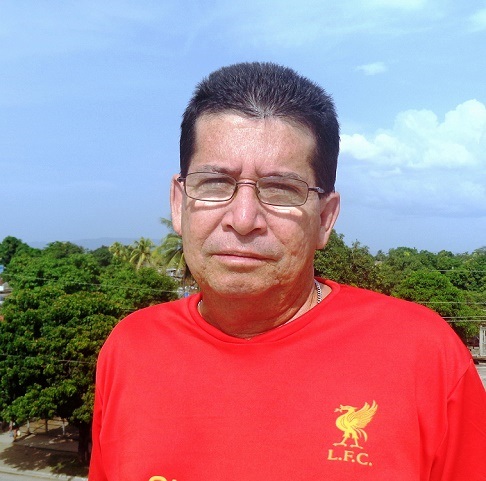 Those who know him well, is aware that during these October days, he seems quieter than usual and his gaze has a mix of different feelings that range from nostalgia for his younger years, the memory of his teammates and rage when remembering the horrible crime perpetrated on October 6, 1976.
Those who know him well, is aware that during these October days, he seems quieter than usual and his gaze has a mix of different feelings that range from nostalgia for his younger years, the memory of his teammates and rage when remembering the horrible crime perpetrated on October 6, 1976.
Gaspar Sotolongo Pérez could have been one of the 73 victims of the mid-flight explosion of the Cubana CU-455 plane in Barbados, where, among other passengers, the national youth fencing team was traveling. Boys who were returning to the Homeland with all the
gold medals from the Central American and Caribbean Games.
It was the 1970s and Soto, as everyone called him, was one of the members of the national fencing team, a roster that also included his fellow citizens Ramón Infante García and Juan Duany González, who died in the sabotage carried out by the terrorists Orlando Bosch and Luis Posada Carriles.
“Both Ramón and Duany were very good athletes – says Soto – very persevering, with a lot of mastery of technique in their weapons and always very concerned about those of us who were younger on the national team.”
Why you did not participate in that competition as a member of the national team?
“Based on a resolution issued by the International Fencing Federation and to avoid gigantism in the Olympic Games that year in Montreal, it is indicated that of five representatives in each weapon, only three would participate.
The INDER authorities decided that the athletes that would represent the country in the Central American Games in Venezuela would be made up primarily by members of the youth team.
I was the fourth foil. That´s why I did´nt travel to those games.”
47 years have passed since that barbarity that shook the Island, the sister nations of the Caribbean, and the international sports movement, and it is still hard to talk to Gaspar Sotolongo Pérez about these events.
Receiving the news of the sabotage in Guantanamo, the immediate return to Havana, the confusion that even led to the publication of a photo of him among the dead, arriving at the dormitory and not finding his teammates, the burial of the victims, and above all, hearing Fidel’s words at the Plaza de la Revolución, touched his life forever.
“It was a moment that I will never be able to forget; feeling the pain firsthand, seeing the people enraged and hearing the Commander in Chief say: Our athletes sacrificed in the prime of their lives and faculties will be eternal champions in our hearts!”